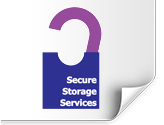How To Keep Paper Documents Safe at Home Back

In an increasingly digital age, the importance of keeping paper documents safe at home cannot be overlooked. Whether it's personal documents, financial records, legal paperwork, or sentimental items, safeguarding these documents is crucial to protect your identity, privacy, and important information.
We have all kinds of documents that require safekeeping at home. Many people have a drawer at home full of paperwork, letters, passports, deeds and birth certificates. These drawers are often cramped and things can seemingly disappear in amongst the variety of items people choose to store away here.
Typical Documents We Keep in The Home
1. Personal Identification Documents: Passports, driver's licenses, social security cards, and birth certificates are used to prove our identification. These essential personal identification documents that should be protected against loss, theft, or damage in the home.
2. Financial Records: Bank statements, tax returns, investment portfolios, and insurance policies contain sensitive financial information that needs to be safeguarded to prevent identity theft and unauthorized access.
3. Legal Documents: Property deeds, wills, power of attorney documents, and contracts should be stored securely to ensure their integrity and protect your legal rights.
4. Medical Records: Medical histories, prescriptions, test results, and insurance information must be kept safe to maintain privacy and facilitate efficient healthcare management.
5. Educational Certificates: Diplomas, degrees, transcripts, and educational records hold significant value and should be protected for future reference or employment purposes.
Organize and Categorize
One of the most efficient ways to keep documents safe is just to have them organized correctly and not cluttered. This may not increase the security of the items, but it will help against loss and make items easier to retrieve when needed.
When drawers are packed full of documents, it can be easy for a document to fall down the back of the unit or fall inside another document, which can then be discarded on accident.
Sort your documents into categories for easy access and retrieval. Use labelled folders, envelopes, or binders to keep them organized and prevent misplacement or accidental damage.
Limit Access and Inform Trusted Individuals
There may be scenarios where somebody may need to find a document on your behalf.
Restrict access to these documents by informing only trusted family members of their location. Keeping documents in plain sight of the visitors to your home is not recommended.
Utilize Secure Storage Solutions: Consider using a locked filing cabinet or drawers with a key or combination lock to add an extra layer of security for your important documents.
You can get locked filing cabinets and drawers in various sizes, so it does not need to clutter up your home and a huge upgrade on an open drawer.
Invest in a Fireproof Safe
If you want to protect your documents from not only theft but from potential environmental damage, you can purchase a fireproof safe. These are designed to withstand high temperatures and protect your documents from fire-related damage.
You can also fix these to the floor or wall to deter theft as thieves will have little time to try to dislodge the safe and then depart with the item.
A safe in the home is one the best ways to keep your documents safe from every potential risk and a must have for the security conscious.
Implement Digital Backups
You can also scan and create digital copies of your essential documents, storing them securely on encrypted external hard drives, cloud storage services, or password-protected online platforms.
This provides an additional backup in case of physical damage or loss.
Consider the Environment
Keep your documents away from direct sunlight, moisture, extreme temperatures, or areas prone to flooding. Choose a cool, dry, and well-ventilated location for storage.
Items stored under a sink, for example, could be destroyed by a leak or items kept in an outside storage unit could be flooded or damaged by frost.
Regularly Review and Check
Some documents do not need to be kept forever. Make it a regular task to go through your items and destroy any unnecessary or outdated papers. This will help to declutter and maintain an organized storage system.
Use Shredding or Incineration
Dispose of sensitive documents properly by shredding them before discarding them. Shredding is a very safe way of discarding your documents and ensures that confidential information cannot be retrieved from discarded papers.
If you have an incinerator in the garden, you can also dispose of paper waste by burning it the next time you are disposing of garden waste.
Learn More About Document Security
Protecting your paper documents at home requires you to have a proactive approach to document security.
By understanding the types of documents that require safekeeping and implementing effective measures such as fireproof safes, secure storage solutions, digital backups, limited access, proper disposal, and environmental considerations, you can safeguard your important information.
It is important to maintain your privacy and have peace of mind knowing that your personal documents are well protected. We urge all our customers to prioritize document security and make it a habit to regularly review and update their storage system.
If you want to hear more about how Secure Storage can help you keep both your personal and business documents safe, simply call us on 0151 293 4000
Additionally, we offer secure document box storage for businesses looking to keep their records offsite.


 Based in Liverpool and Wirral, we provide document storage, scanning and shredding services nationwide.
Based in Liverpool and Wirral, we provide document storage, scanning and shredding services nationwide.

